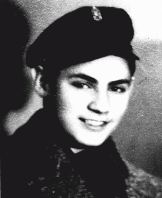You searched for: 澳门威尼斯人网址【手动输入∶___bet126.net___】最新地址请收藏,澳门威尼斯人网址是多少,澳门威尼斯人全部网址,澳门新威尼斯人的网址,澳门威尼斯人网址玩法,澳门威尼斯人网址44,澳门威尼斯人开户网址。
<< Previous | Displaying results 381-390 of 430 for "澳门威尼斯人网址【手动输入∶___bet126.net___】最新地址请收藏,澳门威尼斯人网址是多少,澳门威尼斯人全部网址,澳门新威尼斯人的网址,澳门威尼斯人网址玩法,澳门威尼斯人网址44,澳门威尼斯人开户网址。" | Next >>
-
Leon Kusmirek
ID CardLeon was the oldest of two boys born to a Jewish family in Zgierz, a central Polish town in the heart of Poland's textile producing region. The family lived at 15 Konstantynowska Street. Leon's father worked at a textile factory. At age 7, Leon began attending public school in the morning and religious school in the afternoon. 1933-39: On Friday, September 1, 1939, Leon's mother had just returned from the market when the family saw German planes. On Sunday they flew over again, lower, panicking the city.…
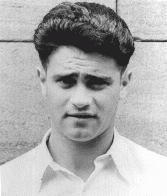
-
Wolf Himmelfarb
ID CardWolf was the eldest of three children born to Yiddish-speaking, religious Jewish parents in Koprzewnica, a small town in southern Poland. His father ran a grocery store, where his mother would help out on Thursdays. The store was located in the house of Wolf's grandmother, and Wolf, his brother, Izik, and sister, Chana, would play in a large yard in the back. 1933-39: Wolf started attending school a year late, at 8, so that he and his younger brother could share the same books. In the third grade, Jewish…
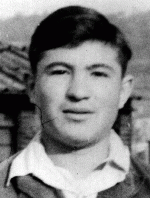
-
Josef Edelstein
ID CardJosef was one of seven children born to a Jewish family in the Czechoslovakian village of Hvozdnice. After graduating from school, Josef worked as a salesman in Vienna. In 1912 he married Ida Kohn, and the couple had a son before he left to fight for Austria in World War I. After the war, they had a daughter. 1933-39: Because of the economic depression of the 1930s, it was difficult for Josef to make a living in his wholesale shoe business. In 1938 the Germans annexed Austria [the Anschluss], and soon…
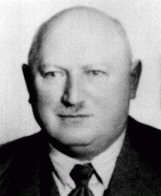
-
Bertha Falkenstein
ID CardOne of two children, Bertha grew up in the small village of Bergheim where her father was a farmer. After she married Leo Falkenstein, the couple settled in Hochneukirch, 20 miles northwest of Cologne. There her husband was employed in his father's cigar manufacturing business, "Isak Falkenstein and Sons." Bertha and Leo had six children whom they raised in the Jewish faith. 1933-39: In 1937 Bertha's daughter Johanna brought her two girls to live briefly with them in Hochneukirch. Johanna's husband, Carl,…
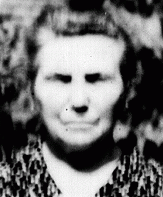
-
Jan Komski
ID CardJan was born to a Catholic family in the small Polish town of Bircza. His father, a World War I veteran, moved the family to Brzozow shortly after the war. Brzozow was a small manufacturing town in southeastern Poland. After graduating from secondary school, Jan enrolled at the Academy of Fine Arts in Cracow. 1933-39: Cracow was a beautiful old city; Jan studied its remarkable churches and synagogues in his classes. By September 1939, however, the war engulfed the beauty of Cracow. He left to escape the…
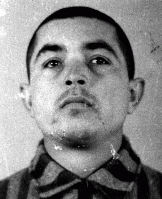
-
Helga Leeser
ID CardThe older of two sisters, Helga was raised by prosperous, non-religious Jewish parents in the small Catholic town of Duelmen in western Germany. Her family owned a linen factory. Before marrying Helga's much older father in 1927, her mother had been a Dutch citizen. As a child, Helga looked forward to vacations in the Netherlands with its comparatively relaxed atmosphere. 1933-39: At age 6 Helga began attending a Catholic elementary school. Antisemitism wasn't a problem until the night of November 9, 1938…
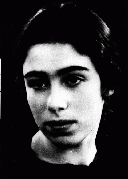
-
Erzsebet Markovics Katz
ID CardErzsebet was born to Jewish parents living in a town on the Bodrog River in northeastern Hungary. Sarospatak was a picturesque town with a ruined medieval fortress, the Windischgratz castle, and many wineries, flour mills, and brickworks. Erzsebet's father was a locksmith and sheet-metal worker. 1933-39: Erzsebet has married Jozsef Katz. It was a lovely, formal wedding. Jozsef comes from a large Jewish family. He's a joiner by trade and was working in Sarospatak when they met. Now they have moved here to…
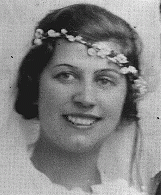
-
Max Liebster
ID CardMax was one of three children born to a Jewish family living in a small town in the Hessian part of Germany. His father was originally from Poland. After eight years of public education, Max completed three years of business school and learned to become a window decorator. In 1929 he found work in Viernheim, a village near Mannheim. 1933-39: Max worked for a clothing store where he was in charge of window dressing. Except for the weekends when there were Nazi marches, life was quiet in Viernheim. Right…
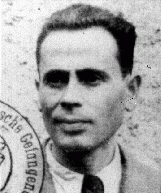
-
Settchen Oppenheimer
ID CardSettchen was one of three children born to a religious Jewish family in a small town in the German state of Hessen. Her father was a cantor and kosher butcher. Settchen completed grade school during the 1880s. Because of a digestive disease, Settchen was largely homebound. She never married, and lived with her younger sister and brother-in-law. 1933-39: Reichenbach was a quiet town. Its largely Protestant inhabitants were generally not antisemitic. After Hitler came to power in 1933, the Nazis staged…
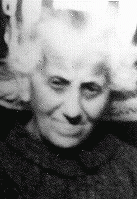
-
Moses Rechnitz
ID CardThe younger of two children, Moses was born to Jewish parents living in the southwestern Polish town of Bedzin. When he was 7, his family moved to the nearby city of Katowice where his father had a wholesale leather business. The Rechnitzes lived in a three-bedroom, upper-floor apartment on Jordana Street. Moses attended a Polish elementary school and also received religious instruction. 1933-39: In secondary school, Moses was one of the only Jewish pupils. He first encountered antisemitism when a teacher…
